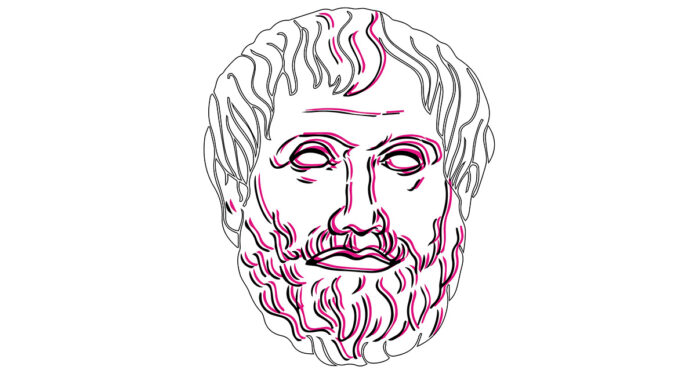La verità ultima
Affermava l’antropologo David Graeber che la verità ultima e nascosta del mondo è che è qualcosa che creiamo, e che potremmo facilmente fare in modo diverso. Più che efficace, sottoscrivo.
Che c’entra il digitale?
Rileggiamo: “verità ultima e nascosta”. Nascosta non perché di per sé la verità sia per propria logica ciò che è nascosto (tesi di un grande e inquietante filosofo del Novecento, Martin Heidegger) e che poi, per i fatti suoi, quando vuole, si fa vedere o trovare – no!- ma perché noi non vogliamo vederla. Il problema siamo noi, non la verità. Come al solito la questione è il rimosso e ciò che si sostituisce a ciò che è stato rimosso.
Verità di che cosa? Del mondo. Mondo sta per tutte le cose del cielo e della terra e ovviamente anche degli uomini. Vale anche per ciò che è storicamente determinato. Ad esempio, il mondo egizio; o per ciò che si dà come diverso: “… ma che dici? cose d’altro mondo!”.
Vale anche per ornamento. Cioè il tutto può essere ordinato e – perché no? pulito, elegante … bello”.
Il Tutto
Ebbene, Graeber ci dice che tutto ciò (e questo tutto è veramente il Tutto) “è qualcosa che creiamo” e dobbiamo aggiungere “che creiamo noi”. Proprio cosi! Ci mette di nuovo di mezzo.
Voleva forse dire che siamo noi dio? Non credo proprio. Dalla lettura di alcuni suoi scritti non mi sembra così ingenuo o delirante. Forse voleva dirci che ne siamo responsabili o forse aveva intuito qualcosa che emerge dal digitale e che io sto in vario modo cercando di capire, qualcosa che sto inseguendo.
Provo a dirlo così: gli enti (tutti del Tutto), materiali e immateriali, sono stati di relazione. Ciò che chiamiamo vita è l’insieme sempre in relazione e in processo (in movimento!?) degli stati di relazione. Questa relazione è nel contempo materiale e immateriale ed è sempre posizionata. Noi usiamo per questo la parola intelligenza.
Il mondo come stati di relazione
Il mondo, ripeto, materiale e immateriale, si forma nelle e per le relazioni, nell’intelligenza. Esistono molte articolazioni, forme di intelligenza, cioè stati di relazione, in ciò che chiamiamo vita e in ciò che chiamiamo mondo. La nostra intelligenza, cioè il nostro mondo, nelle sue relazioni con molteplici, occasionali o meno, altre intelligenze configura le stesse condizioni di possibilità.
Questo, per quanto oggi mi riguarda, ci dice il digitale e, in particolare, oggi con e nella sua evoluzione tecnologica che chiamiamo intelligenza artificiale. Ogni tecnologia è biologia e ogni biologia è tecnologia,. Ed è per questo che non solo potremmo fare (creare) un mondo diverso, ma lo potremmo fare facilmente: la diversità è a nostra disposizione e si chiama il digitale. Sta a noi.
States of relation
The ultimate and hidden truth
The anthropologist David Graeber said that the ultimate and hidden truth of the world is something we create, and that we could easily do differently. More than effective, I agree.
What does digital have to do with it?
Let’s read again: “ultimate and hidden truth”. It is hidden not because the truth is by its own logic what is hidden (thesis of a great and disturbing twentieth-century philosopher, Martin Heidegger). It is hidden not because, for its own business, when it wants, it makes itself seen or found – no! – but because we do not want to see it. The problem is us, not the truth. As usual, the question is what is repressed and what replaces what has been repressed.
Truth of what? Of the world. World stands for all things in heaven and on earth. Of course, it also stands for men and it applies to what is historically determined. For example, the Egyptian world; or for what is given as different: “… what are you saying? things of this world! “.
Moreover, it applies to ornament. In this respect, everything can be ordered and – why not? clean, elegant … beautiful “.
The Whole
Well, Graeber tells us that all of this (and all of this is truly the Whole) “is something we create” and we must underline “that we create”. That is right! It brings us up again.
Did he mean that we are gods? I do not think so. From reading some of his writings, he does not seem so naive or delusional to me. Perhaps he wanted to tell us that we are responsible for it or perhaps he had sensed something that emerges from the digital and that I am in various ways trying to understand, something that I am chasing.
I try to explain: the entities (all of the Whole), material and immaterial, have been in relation. What we call life is the set, always in relation and in process (in motion!?) of the states of relation. This relationship is both material and immaterial and is always in place. We use the word intelligence for this.
The world as states of relationship
The world, I repeat, material and immaterial, is formed through relationships and in intelligence. There are many articulations, forms of intelligence, that is, states of relationship, in what we call life and in what we call world. Our intelligence that is our world, in its relations with multiple, occasional other intelligences configures the same conditions of possibility.
This, as far as I am concerned today, tells us about the digital. In particular, today, thanks to its technological evolution, it tells about what we call artificial intelligence. Every technology is biology, and every biology is technology. In fact, that’s why not only we could do (create) a different world, but we could do it easily: diversity is available to us and it’s called digital. It is up to us.








